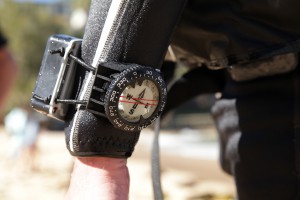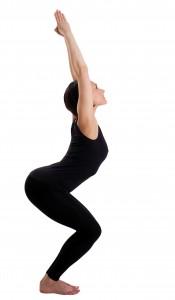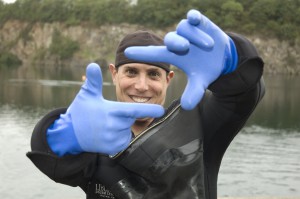Improving Dive Skills On Dry Land- Part 1
Has your scuba diving trip to Maui been delayed due to the pandemic? There are things you can do to prepare and improve your skills topside. Then, when you do make it to dive with us, you can make the most of your time underwater. Here are a few suggestions, from us and PADI.
Come to grips with compass navigation
Hone your navigation skills on solid ground, where you don’t have to worry about buoyancy. Find an open space, such as a park or beach, and have your underwater compass in hand.

Start with a straight path and, facing your intended destination, set your compass bearing using the techniques learned in your underwater navigator course. Remember to keep your compass straight, and count your strides as an alternative to fin kicks. Once you’re comfortable with reciprocal lines, move on to more advanced routes such as a square or a point-to-point route your buddy sets out.
Next, try this a second time but with a towel over your head. You’ll need to see the compass in your hands but not the path in front of you, so make sure you’ve got a buddy by your side to keep you safe. Repeat the previous exercises using only your compass for direction. The key here is to trust your compass and not your own sense of direction!
Once you’ve mastered the ability to quickly and accurately follow compass bearings on land, your underwater navigation will feel much easier. In no time at all, you’ll find yourself prepared and confident to take the lead on your next dive.
Keep dive fit with exercises and yoga
A little time spent exercising every day not only improves your overall health, but it can also help your diving. Aerobic exercise such as running or spending time on the elliptical can help build your endurance, weight lifting can improve your strength, and stretches can increase your flexibility. Upper body and arm exercises often make it easier to carry dive gear to and from the beach, or climb back onto a boat. Targeting leg muscles can help to improve finning techniques and reduce the risk of muscle cramps.

Yoga classes can help you master breathing techniques. Conscious breathing can help to slow down your heart rate and relax you, which in turn may calm nerves and reduce air consumption.
There are many ways to add exercise into your daily routine. If your gym or health club is temporarily closed, ask if they are offering any free online classes for members. There are also many free classes on YouTube. try slotting a session in before or after work.. Get an exercise mat and squeeze in a quick session whenever you find a spare 10-15 minutes if signing up for the gym isn’t your style. Even small adjustments to your daily routine can also help: taking the stairs instead of the elevator or walking to the store instead of driving. The key thing is to use your time on the surface to keep active and ensure you’re ‘dive fit’ before your next scuba trip.
Get snap happy to improve your underwater photography
It’s pretty fair to say that, if you’re not a good photographer topside, you won’t be a good photographer underwater either. The features on your camera are much easier to get used to without a mask, housing, or gloves adding to the task, and if you master the art of lighting and composition on surface subjects first, you’ll have greater success with your diving pictures as a result.

Since objects appear bigger and closer underwater than they actually are, underwater photographers need to be comfortable with getting close to their subjects. Go ahead. Get up there. But make sure you stay aware of your distance so you don’t get too close; once you’re underwater you should avoid distressing marine life just to get a ‘perfect shot’.
Search for reef-like environments on land, like a forest, and explore structures akin to wrecks to refine your lighting and composition techniques. Practice using different angles by getting under trees and pointing the lens up. Get a family member to pose as a model and play around with perspective and depth of field. The beauty of digital photography is that you can take endless photos and often get instant feedback, so make the most of the opportunity; keep a camera with you and get ‘snap happy’ everywhere you go. Most importantly, don’t be afraid to try new things and experiment!
When you’ve discovered what works well and honed your photography skills, aim to expand on these techniques as a digital underwater photographer, and you’ll be winning photo contests before you know it.
More to come
We’ll follow up next month with more ideas for practicing land-based skills that will improve your diving. In the meantime, feel free to peruse our charters in the warm, scenic Maui waters. We would be happy to help you plan your next diving adventure!
